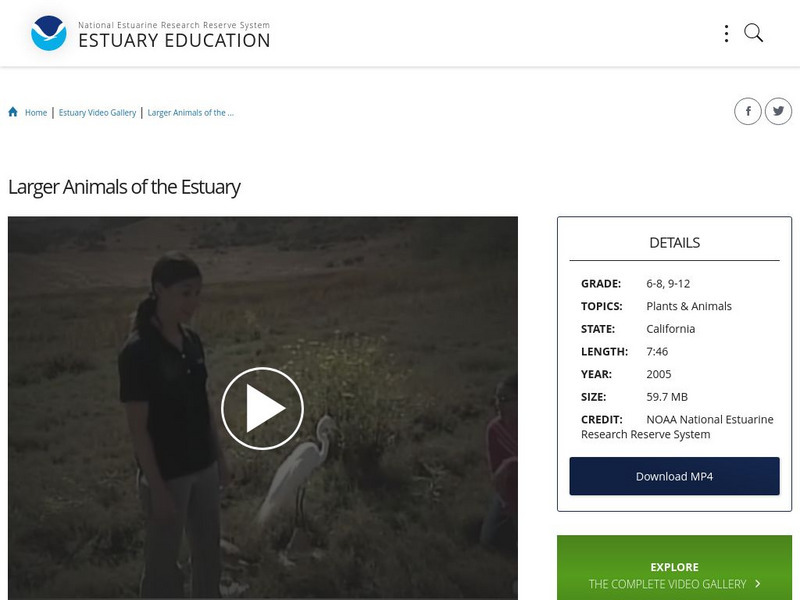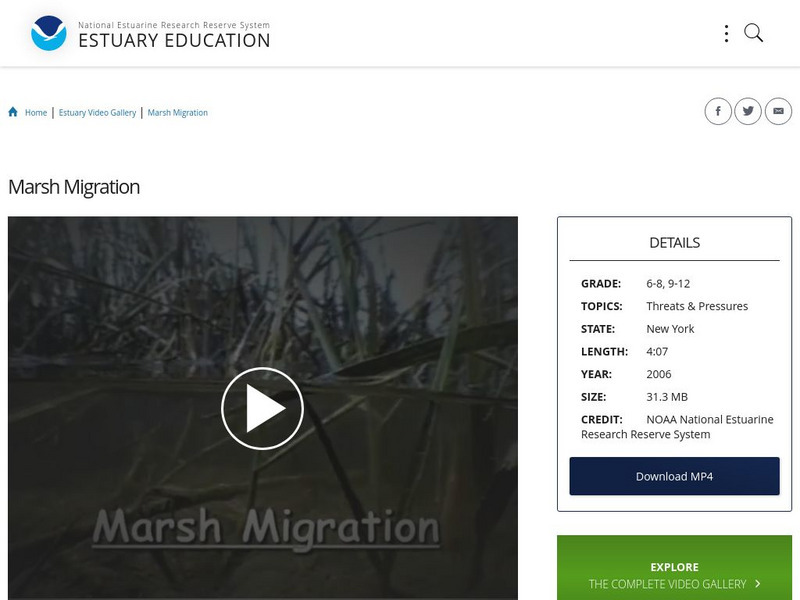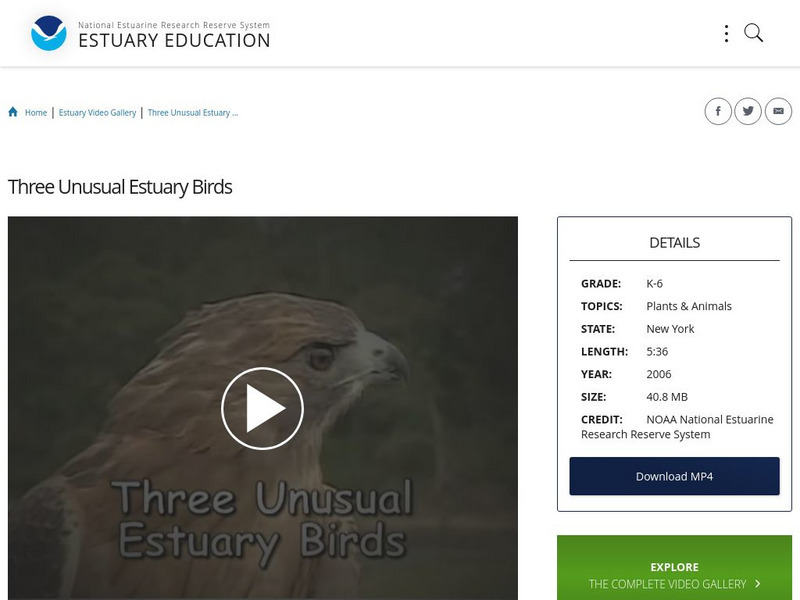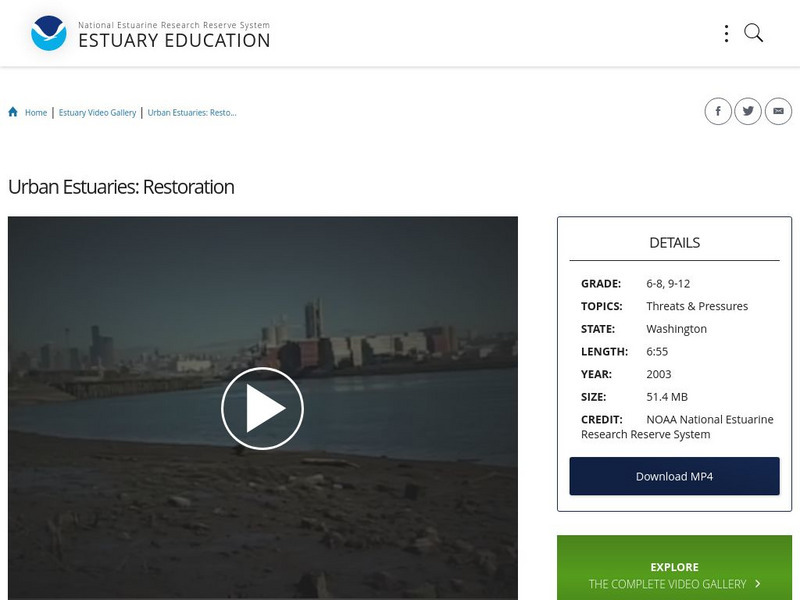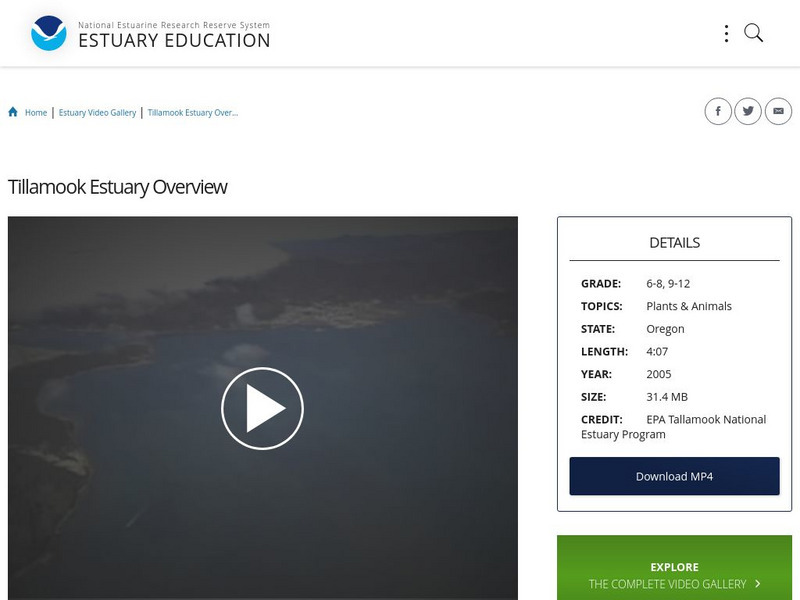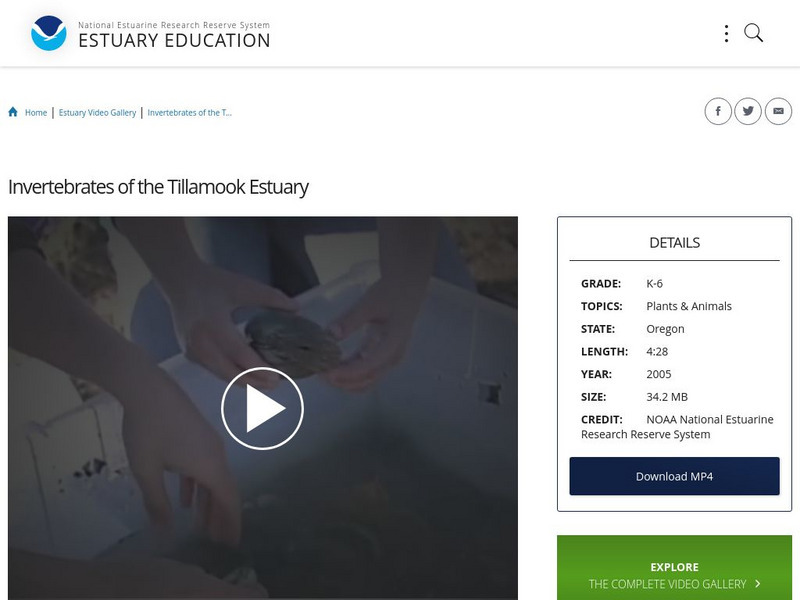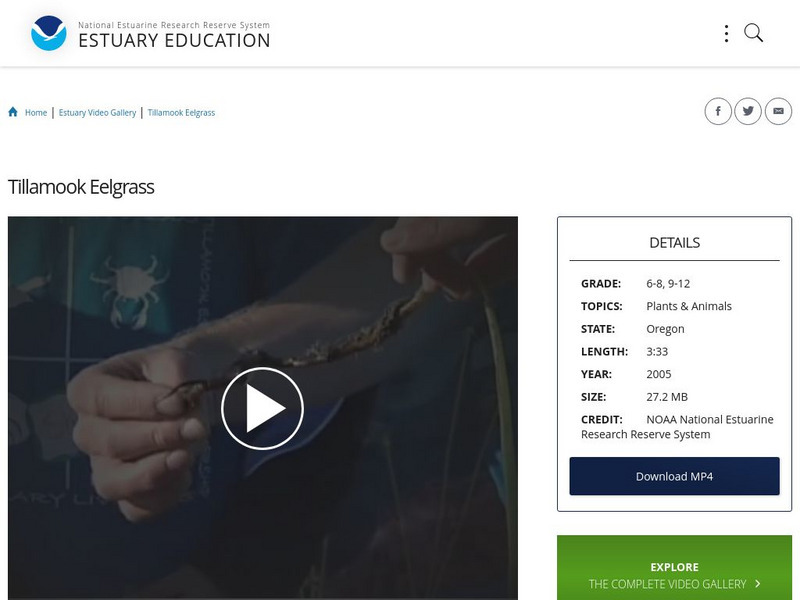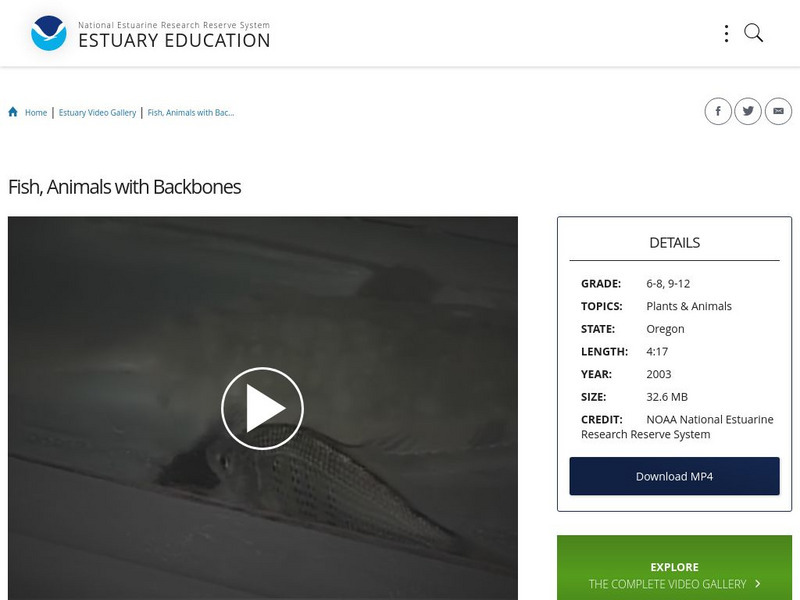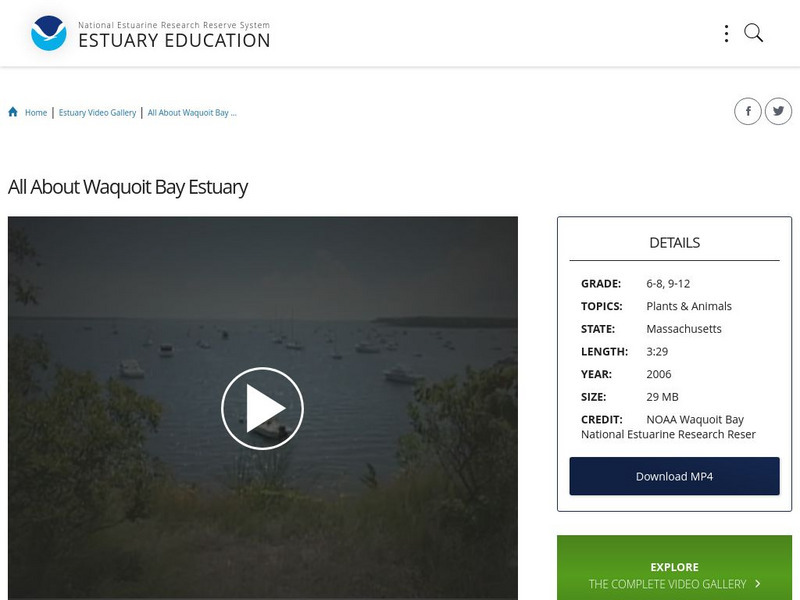NOAA
Noaa: Estuary Education: Urban Estuaries: Water Quality Testing
Students measure water quality in the NY-NJ Estuary using simple tools. Scientists explain the importance of good water quality and talk about what causes water quality declines. [5:44]
NOAA
Noaa: Estuary Education: Hermit Crab Research
A young researcher studies how hermit crabs live and reproduce in the estuary. She also discusses the value of the Estuarine Research Reserve system. [4:57]
NOAA
Noaa: Estuary Education: Horseshoe Crabs
A close-up look at the horseshoe crab, an ancient estuary animal. [10:14]
NOAA
Noaa: Estuary Education: Estuary Scavenger Hunt
Follow this group of students through their scavenger hunt in the estuary. Take a look at the living and nonliving things that make this ecosystem a special place. [9:38]
NOAA
Noaa: Estuary Education: China Camp State Park
California's China Camp State Park is an important environmental and historic site which has a natural watershed along the shores of San Francisco Bay. Features in the estuary include an extensive intertidal salt marsh, meadow, and oak...
NOAA
Noaa: Estuary Education: Larger Animals of the Estuary
Join a naturalist who studies the large animals and native birds found in the estuarine areas. Spend the day exploring the San Francisco Bay Estuary with this group of students. [7:46]
NOAA
Noaa: Estuary Education: Restoring the Estuary
Students learn about the destructive effect invasive plants have on an estuarine ecosystem, and they get hands-on experience getting rid of these non-native species. [5:41]
NOAA
Noaa: Estuary Education: Marsh Migration
Dr. Alex Kolker shows high school students how a salt marsh can actually migrate across the landscape. He uses fresh core samples taken by students to demonstrate his points. [4:04]
NOAA
Noaa: Estuary Education: Three Unusual Estuary Birds
We know many birds make their homes in the estuary. Some are familiar to us but here are three species that are more elusive. We get a close-up view of a Barred Owl, a Red-Tailed Hawk, and an American Oyster Catcher. [5:34]
NOAA
Noaa: Estuary Education: Urban Estuaries: Home to Native Peoples
Find out how progress and expansion displace native peoples who have lived in harmony with the estuary for generations. [6:43]
NOAA
Noaa: Estuary Education: Urban Estuaries: Living in a Toxic Soup
Urban areas often expand around estuaries. Industrial development often leaves a legacy of pollution in these areas. This video looks at what kind of long-term pollution is found in the Duwamish estuary in Seattle, and how estuary life...
NOAA
Noaa: Estuary Education: Urban Estuaries: Restoration
Students and citizen groups seek to restore and reclaim damaged, changed, or polluted estuaries. [6:52]
NOAA
Noaa: Estuary Education: Getting Involved
Learn how to get involved to protect these important but fragile resources in the estuary ecosystem. [4:59]
NOAA
Noaa: Estuary Education: Tillamook Estuary Overview
A video overview of the amazing Tillamook Estuary in Oregon. Exciting photography highlights this 3-minute look this national treasure. [4:03]
NOAA
Noaa: Estuary Education: Invertebrates of the Tillamook Estuary
Students learn about Tillamook Estuary invertebrates and their importance in the food web. [4:25]
NOAA
Noaa: Estuary Education: Tillamook Eelgrass
Eelgrass is one of the most important plant species in the estuary. Tillamook estuary has both native and introduced species of eelgrass. Students learn what this means for the fragile estuarine environment. [3:30]
NOAA
Noaa: Estuary Education: Fish, Animals With Backbones
Learn about the life of several fish species as they thrive in the estuary ecosystem. See some close-ups of South Slough Estuary fishes while learning about their importance to the food chain. [4:14]
NOAA
Noaa: Estuary Education: Water Quality in South Slough Reserve
Learn how to measure and test for water quality with simple tools. We discuss the need for constant measurement and testing and learn about the status of water quality in South Slough Estuary Reserve. [7:17]
NOAA
Noaa: Estuary Education: All About Waquoit Bay Estuary
A quick overview of the Waquoit Bay Estuary, including what an estuary is and what makes this estuary unique. [3:29]
NOAA
Noaa: Estuary Education: Researching the Clam
Everything you wanted to know about clams and other related bivalves of Waquoit Bay in Massachusetts. [4:21]
NOAA
Noaa: Estuary Education: Cool Critters of Peconic Bay
Young students show and describe some of the unique critters in the Peconic estuary in New York. [7:49]
NOAA
Noaa: Estuary Education: Tracking Striped Bass
Estuary scientists use sophisticated electronic equipment to study and track the Striped Bass, a resident of the estuary and open ocean. [9:16]
NOAA
Noaa: Estuary Education: Sampling Seagrass
A look at various types of estuary grasses and the animals that are sheltered in this habitat, plus a look at the methods scientists use to study these grasses. [6:10]
NOAA
Noaa: Estuary Education: Intertidal Habitat
Join a scientist and several young students as they explore an intertidal pool using a seine net and fish traps. [4:45]





